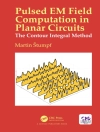Online learning from a signal processing perspective
There is increased interest in kernel learning algorithms in
neural networks and a growing need for nonlinear adaptive
algorithms in advanced signal processing, communications, and
controls. Kernel Adaptive Filtering is the first book to
present a comprehensive, unifying introduction to online learning
algorithms in reproducing kernel Hilbert spaces. Based on research
being conducted in the Computational Neuro-Engineering Laboratory
at the University of Florida and in the Cognitive Systems
Laboratory at Mc Master University, Ontario, Canada, this unique
resource elevates the adaptive filtering theory to a new level,
presenting a new design methodology of nonlinear adaptive
filters.
* Covers the kernel least mean squares algorithm, kernel affine
projection algorithms, the kernel recursive least squares
algorithm, the theory of Gaussian process regression, and the
extended kernel recursive least squares algorithm
* Presents a powerful model-selection method called maximum
marginal likelihood
* Addresses the principal bottleneck of kernel adaptive
filters–their growing structure
* Features twelve computer-oriented experiments to reinforce the
concepts, with MATLAB codes downloadable from the authors’ Web
site
* Concludes each chapter with a summary of the state of the art
and potential future directions for original research
Kernel Adaptive Filtering is ideal for engineers,
computer scientists, and graduate students interested in nonlinear
adaptive systems for online applications (applications where the
data stream arrives one sample at a time and incremental optimal
solutions are desirable). It is also a useful guide for those who
look for nonlinear adaptive filtering methodologies to solve
practical problems.
Tabela de Conteúdo
PREFACE.
ACKNOWLEDGMENTS.
NOTATION.
ABBREVIATIONS AND SYMBOLS.
1 BACKGROUND AND PREVIEW.
1.1 Supervised, Sequential, and Active Learning.
1.2 Linear Adaptive Filters.
1.3 Nonlinear Adaptive Filters.
1.4 Reproducing Kernel Hilbert Spaces.
1.5 Kernel Adaptive Filters.
1.6 Summarizing Remarks.
Endnotes.
2 KERNEL LEAST-MEAN-SQUARE ALGORITHM.
2.1 Least-Mean-Square Algorithm.
2.2 Kernel Least-Mean-Square Algorithm.
2.3 Kernel and Parameter Selection.
2.4 Step-Size Parameter.
2.5 Novelty Criterion.
2.6 Self-Regularization Property of KLMS.
2.7 Leaky Kernel Least-Mean-Square Algorithm.
2.8 Normalized Kernel Least-Mean-Square Algorithm.
2.9 Kernel ADALINE.
2.10 Resource Allocating Networks.
2.11 Computer Experiments.
2.12 Conclusion.
Endnotes.
3 KERNEL AFFINE PROJECTION ALGORITHMS.
3.1 Affine Projection Algorithms.
3.2 Kernel Affine Projection Algorithms.
3.3 Error Reusing.
3.4 Sliding Window Gram Matrix Inversion.
3.5 Taxonomy for Related Algorithms.
3.6 Computer Experiments.
3.7 Conclusion.
Endnotes.
4 KERNEL RECURSIVE LEAST-SQUARES ALGORITHM.
4.1 Recursive Least-Squares Algorithm.
4.2 Exponentially Weighted Recursive Least-Squares
Algorithm.
4.3 Kernel Recursive Least-Squares Algorithm.
4.4 Approximate Linear Dependency.
4.5 Exponentially Weighted Kernel Recursive Least-Squares
Algorithm.
4.6 Gaussian Processes for Linear Regression.
4.7 Gaussian Processes for Nonlinear Regression.
4.8 Bayesian Model Selection.
4.9 Computer Experiments.
4.10 Conclusion.
Endnotes.
5 EXTENDED KERNEL RECURSIVE LEAST-SQUARES ALGORITHM.
5.1 Extended Recursive Least Squares Algorithm.
5.2 Exponentially Weighted Extended Recursive Least Squares
Algorithm.
5.3 Extended Kernel Recursive Least Squares Algorithm.
5.4 EX-KRLS for Tracking Models.
5.5 EX-KRLS with Finite Rank Assumption.
5.6 Computer Experiments.
5.7 Conclusion.
Endnotes.
6 DESIGNING SPARSE KERNEL ADAPTIVE FILTERS.
6.1 Definition of Surprise.
6.2 A Review of Gaussian Process Regression.
6.3 Computing Surprise.
6.4 Kernel Recursive Least Squares with Surprise Criterion.
6.5 Kernel Least Mean Square with Surprise Criterion.
6.6 Kernel Affine Projection Algorithms with Surprise
Criterion.
6.7 Computer Experiments.
6.8 Conclusion.
Endnotes.
EPILOGUE.
APPENDIX.
A MATHEMATICAL BACKGROUND.
A.1 Singular Value Decomposition.
A.2 Positive-Definite Matrix.
A.3 Eigenvalue Decomposition.
A.4 Schur Complement.
A.5 Block Matrix Inverse.
A.6 Matrix Inversion Lemma.
A.7 Joint, Marginal, and Conditional Probability.
A.8 Normal Distribution.
A.9 Gradient Descent.
A.10 Newton’s Method.
B. APPROXIMATE LINEAR DEPENDENCY AND SYSTEM STABILITY.
REFERENCES.
INDEX.
Sobre o autor
Weifeng Liu, Ph D, is a senior engineer of the Demand
Forecasting Team at Amazon.com Inc. His research interests include
kernel adaptive filtering, online active learning, and solving
real-life large-scale data mining problems.
José C. Principe is Distinguished Professor of
Electrical and Biomedical Engineering at the University of Florida,
Gainesville, where he teaches advanced signal processing and
artificial neural networks modeling. He is Bell South Professor and
founder and Director of the University of Florida Computational
Neuro-Engineering Laboratory.
Simon Haykin is Distinguished University Professor at
Mc Master University, Canada.He is world-renowned for his
contributions to adaptive filtering applied to radar and
communications. Haykin’s current research passion is focused on
cognitive dynamic systems, including applications on cognitive
radio and cognitive radar.












